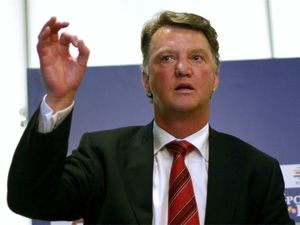19 Feb 2016
Why we need more mavericks, not less.

I watched the recent BBC documentary on Kids Company, Camila’s Kids Company: the inside story, with great sadness. It told the story of Camila Batmanghelidjh and the unravelling of one of the UK’s best known charities, who did remarkable work helping some of the most disadvantaged kids in the UK. While what happened is clearly complex, and while its demise leaves many vulnerable people in very precarious situations, the programme also left the viewer with a sense that charismatic, maverick people are bound to lead to trouble, and I found that deeply unsettling.
In the last World Cup, Holland played Costa Rica in one of the semi-finals. The Dutch goalkeeper, Jasper Cillessen , had played a cracking match, but in the last minute of extra time, with a penalty shootout almost a certainty, then-Holland manager Louis van Gaal substituted Cillessen for Tim Krul, a keeper with a worse goalkeeping record. In the end, the match went to penalties, Krul pulled off a series of great saves, and Holland won the match. What could have so spectacularly backfired ended with van Gaal being celebrated as a tactic genius, a “master, maverick and madman“.
Batmanghelidjh emerged from the documentary as a much loved, deeply motivated, compassionate woman who had got out of her depth, Kids Company becoming too big and complex. What worked so well in a small organisation, her unconventional approach, her spontaneous, big-hearted, ability to be flexible and responsive enabled her to work in ways that larger, more cumbersome, bureaucratic organisations couldn’t , increasingly became seen as a problem.
In the programme, the approaches that had made Kids Company so successful, so loved, so impactful, came under the cold light of scrutiny, as they have in the press over recent weeks. When seen under that harsh light, yes there were some questionable activities, but not many – what emerged into view was a maverick way of working, in all its imperfections.
There has never been a time in history when it’s harder to be a maverick. The Cambridge Dictionary defines a maverick as:
“a person who thinks and acts in an independent way, often behaving differently from the expected or usual way”.
But as organisations become more and more risk averse, when social media means that the condemnation of perceived mistakes can be so punishing and instant, fewer and fewer people are willing to really put themselves out there.
I guess I’m a bit of a maverick too. At least, I work in ways which, when things are going well could be seen as maverick, but in the cold harsh light of critical exposure would be seen as a bit odd. I am involved not just in Transition, but also in a brewery and in other things. I take all of August off work and even put my laptop in a drawer. When I give talks they could veer off into stories about all kinds of random things. I don’t fly. I work for an organisation that has ‘Being’ meetings and which starts all its meetings by giving everyone space to talk about how they’re doing.
We self-published a book with ‘Not available on Amazon’ on the back. I write blogs about slugs, my favourite painters and other things in a similar vein. When everything is working, that’s all (I hope) part of my maverick charm. But when it all goes wrong, those are the things used to denigrate your character and your work. But that ought never be a reason to stop doing those things.
Yes, mavericks can be flawed, and no, you probably wouldn’t want to give them the full financial run of an organisation because that’s not their strength, and of course, as an organisation builds around them they need a good Board to support them, but mavericks can make amazing things happen, and in a world where politicians are usually ‘on message’ tow-ers of party lines, I think we need mavericks more than ever before.
 For all her faults, Batmanghelidjh was a remarkable catalyst of remarkable acts of human kindness, and she brought out the good in many people. After the riots in London she came out with the most passionate and insightful observations into what had happened. She once said:
For all her faults, Batmanghelidjh was a remarkable catalyst of remarkable acts of human kindness, and she brought out the good in many people. After the riots in London she came out with the most passionate and insightful observations into what had happened. She once said:
“Anger is waiting for someone else to do something. I tend to just become lethal, decide that something needs to be done and do it”.
This is a time where people need to step up, to show leadership, to inspire others, to start projects that many people might imagine to be impossible, to not take no for an answer. Doing so requires the ability to touch people, to inspire them, and that requires mavericks. Sadly, since that incredible World Cup semi-final, Louis van Gaal seems to have lost his maverick status, opting instead to play deeply dull football in his new role as manager of Manchester United. United supporters around the world can only dream that his inner Maverick might once more surface, take risks, be bold, playful and feisty.
If the story of Kids Company teaches us anything, let that thing be that mavericks can do amazing things, and that we should treasure them, rather than leaving us believing we must airbrush out all the risk and the edge that goes with who they are and how they work. Long live the Maverick!